Blog Archive: 2014
2014
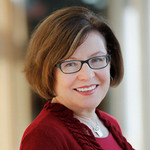
Sylvia Fishman
December 19, 2014
By Sylvia Barack Fishman
In my talk, "American Jewishness Today: Identity and Transmissibility in an Open World," I discussed three challenges to Jewish family formation: late marriage and non-marriage; unwanted low fertility and infertility, and mixed marriage. Each of these is produced in part by the larger society's social norms and is deeply influenced by American culture. And each of these challenges in turn has a profound effect on the transmission of Jewish culture to the next generations.
December 8, 2014
By Ofra Greenberg
Forty-two years ago, as a 27-year-old married woman with a freshly minted PhD in social anthropology, I embarked on a research project to learn about the only women's prison in Israel, Neve Tirza. Specifically, I wondered if it would conform to Canadian sociologist Erving Goffman's characteristics of total institutions: places where a large number of similarly situated people reside.
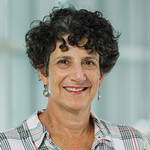
Amy Powell
November 18, 2014
By Amy Powell
Shortly before Rabbi Barry Freundel was arrested on charges of voyeurism for allegedly planting cameras in the synagogue's mikveh areas, HBI's graduate research associate, Rachel Putterman, highlighted the potential for danger in Fresh Ideas from HBI, The Beauty and the Horror of the Mikveh. At the time, some readers criticized Putterman for being extreme or even unrealistic. Looking back, her work was prescient. Shortly after her post appeared, the Freundel abuses came to light.

Amy Powell
October 30, 2014
By Amy Sessler Powell
In the torch song, "Good Morning Heartache," Billie Holiday sings, "Good morning heartache thought we said goodbye last night, I turned and tossed 'til it seemed you had gone, But here you are with the dawn." Some say the lyrics refer to a lover and others believe they relate to her struggle with heroin addiction, but Law Professor Fareda Banda sees the lyrics as a metaphor for the "two steps forward — one step back" pace of the global struggle for women's rights.
October 22, 2014
By Lilach Lurie
In a recent research, I found that most sectorial collective agreements in Israel provide male workers with a right to a family wage. Sectorial collective agreements are reached between unions and employers, and once extended by the minister they bind all the workers and employers in the relevant sector. According to the agreements, male workers whose spouses are not working are entitled to a monetary supplement to their wages. Female workers are not similarly entitled. In other words, collective agreements, which are part of the binding labor law of Israel, provide unequal pay for men and women. While these laws may have made sense at one time, I think it is time for a change.
October 15, 2014
By Julia Phillips Cohen and Sarah Abrevaya Stein
Some six years ago, we began a collaboration with little idea that it would last so long, or yield such rich fruit. Our collaboration was motivated by a single realization: the bulk of sources by and about the Jewish communities we had dedicated our lives to studying remained inaccessible, to specialists, students and lay readers. Most had never been translated into English, republished (in the case of published works), or (in the case of archival sources) published in any form.
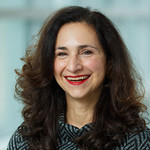
Lisa Joffe
October 8, 2014
By Lisa Fishbayn Joffe
In a recent article in Tablet Magazine, Elana Sztokman describes a disturbing experience flying on the Israeli airline, El-Al. Her plane was delayed because the ultra-Orthodox man assigned to the seat next to her, refused to take his seat. He felt obligated to find someone to trade with him so that he would not have to sit next to a strange woman for the 11-hour flight to Israel. Sztokman describes her feelings of humiliation as men negotiated with each other to solve the problem presented by her embodied presence.
October 1, 2014
By Marjorie Agosin
I grew up listening to the stories of my great-grandmother, Helena Broder, a refugee from the Nazis. I also learned from what was left unsaid in our conversations, spoken in German, Yiddish and Spanish. I never realized that her history as a Jewish refugee would later became my own. History has its peculiar ways of manifesting itself and it often unfolds mysteriously. My immediate family left Chile in the 1970s due to political unrest that culminated with a 17-year military dictatorship.
September 16, 2014
By Rachel Putterman
This summer, I had dialectically opposing experiences connected to the mikveh, the Jewish ritual bath: one was exquisitely moving and beautiful, and the other was quite horrifying in its implications for women. Until a few months ago, I didn’t know much about the mikveh even though I am nearly 50 years old, a rabbinical student and a two-time user of the mikveh.
September 3, 2014
By Ranana Dine
It's an exciting time to be a religious Jewish feminist. Great strides are being made by many progressive halakhic communities to find more and better ways to include women in religious Judaism. From learning Talmud, to more egalitarian minyanim to wearing tefillin, women are becoming a larger part of the conversation of Jewish observance.

Amy Powell
August 26, 2014
By Amy Sessler Powell
Poet and scholar Marcia Falk, acclaimed author of the groundbreaking "Book of Blessings," has just published a new book, "The Days Between: Blessings, Poems, and Directions of the Heart for the Jewish High Holiday Season." Why did she choose to focus on the High Holidays? For the same reason Willie Sutton robbed banks. That’s where the Jews are.
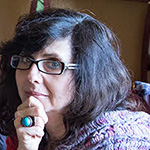
Joanna Beata Michlic
August 13, 2014
By Joanna Beata Michlic
When I began researching the history of those who rescued Jews in wartime Poland, I quickly realized that this is not a closed chapter: that this history has had a deep impact, for a long time after the end of the Holocaust, on the lives of individuals and families of both rescuers and survivors. My work on rescuers also aims to debunk some skewed popular myths pertaining to the memory of the Holocaust that crystallized in the early postwar period such as the theme of the "ignoble ungrateful Jew."
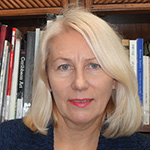
Brygida Gasztold
August 4, 2014
By Amy Powell
Dr. Brygida Gasztold of Koszalin, Poland recently completed her Fulbright Fellowship at the Hadassah-Brandeis Institute. Fresh Ideas editor Amy Powell spoke to Dr. Gasztold about her experiences here.
July 28, 2014
By Ranana Dine
When I began teaching Hebrew school this past year, I never imagined the experience would inspire a major research project. Each week, I would arrive at the small synagogue and try to get 11-year-olds to think that the Hebrew language was cool by playing them music by Idan Raichel (alas, they seemed to prefer American rap music). While this experience was interesting and challenging on its own, it didn't quite inspire my academic imagination like my school readings on feminist Biblical scholarship or American landscape painting.

Lisa Joffe
July 8, 2014
By Lisa Fishbayn Joffe
As a Jewish woman, I was alarmed by two recent decisions of the United States Supreme Court giving employers a right to opt out of insurance coverage for contraception for their employees. Jewish law does not prohibit contraception or abortion. Jewish women who want to be guided by Jewish values in making decisions about their reproductive health may use forms of contraception that may work by preventing the implantation of a fertilized embryo. Some versions of Christianity prohibit this. If I am a Jewish woman working for an employer who holds a different religious view, why should the employer's moral views take precedence over my own?
June 30, 2014
By Laura Morowitz
There's someone missing from the fascinating exhibition at the Neue Galerie, "Degenerate Art: The Attack on Modern Art in Nazi Germany." The exhibit is chock full of Modernist luminaries from the German-speaking world: Oscar Kokoschka, Ernst Ludwig Kirchner, Otto Dix, Paul Klee and the radicals of the Bauhaus. But one artist is conspicuously absent. Gustav Klimt, the modernist provocateur responsible for inspiring Austrian expressionism was never labeled "degenerate."
June 20, 2014
By Elana Maryles Sztokman
HBI changed my life. That's not drama; it's fact. I thought about it last week when Prof. Shulamit Reinharz, Hadassah-Brandeis Institute (HBI) co-director, asked the guests at the 3rd Israeli Gathering of Friends of the HBI to share one thing to which they are thankful to HBI. As I thought about it, I realized — and then shared publicly — that the list of things I have to thank HBI for grows each year. In fact, I said, HBI support completely altered the trajectory of my life.
June 9, 2014
By Ornat Turin
Five months ago, I arrived at HBI for the spring semester as a scholar-in-residence. This is the first time in my life spending a long period outside of Israel. As the child of a captain and a scholar in my adult life, I have had my share of traveling, but I never lived away from Israel for this long. Here was an opportunity to be a witness to cross-cultural distinctions and by that I don't mean the New England winters. All I can say about that is they have nerve calling it the "spring semester."
June 3, 2014
By Esther Macner
The First Amendment to the U.S. Constitution protects individual liberties by prohibiting government sponsored promotion of religion (the "Establishment Clause"), on the one hand, and protecting the right to freely practice religion without government interference, on the other (the "Free Exercise Clause"). However, where one's religious conduct harms others, government must interfere to protect the public good, and constitute our "public policies."
May 23, 2014
By Rivkah Lubitch
I think it's time to deal with the issue of mamzerut. I was exposed to the subject as a result of my work as a rabbinic advocate in Israel, working with women who were denied divorces and agunot, women chained to dead marriages. Through this work, I became familiar with a host of issues surrounding mamzerut, defined as one who is born as a result of sexual incest relations prohibited by the Torah or of relations between a married Jewish woman and a Jewish man (married or not) who is not her husband.
By Irina Rebrova
Recently I gave a lecture to Brandeis University students who study Russian Jewish history. Professor ChaeRan Y. Freeze (Department of Near Eastern & Judaic Studies and Women's & Gender Studies) invited me to speak in her class about Russian and Soviet Jewry. The majority of my presentation was devoted to the oral testimonies that I conducted with Holocaust survivors in the South of Russia. Students seemed to be very interested in learning about oral history as a method of understanding the past.
May 9, 2014
By Rabbi Aryeh Klapper
On March 20, Meir Kin married Daniela Barbosa in Las Vegas though he has refused his ex-wife Lonna Kin an Orthodox Jewish divorce. Kin invoked a clause of Jewish law that suspends the prohibition against polygamy if 100 rabbis agree in writing that the cause is sufficient; he claims to have a document to that effect, although it has not been released and only one rabbi — the one who officiated at the wedding — is on record publicly in favor of the remarriage. Fresh Ideas from HBI asked Rabbi Aryeh Klapper of the Beit Din (rabbinical court) of Boston to share his thoughts on this case.
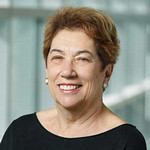
Shulamit Reinharz
April 30, 2014
By Shulamit Reinharz
While I was in France in March a few weeks before Passover, a side trip to Pau turned into a life lesson on the relationship between remembering and memory. My trip started in Toulouse, where I was invited to give a talk at a conference marking the launch of a new organization devoted to the study of European Jewry. I knew that Toulouse was relatively close to Pau, the town associated with the concentration camp named "Gur."
April 14, 2014
By Phyllis Hammer
HBI Board Chairwoman Phyllis Hammer delivered these remarks about her late mother-in-law, Helen Gartner Hammer, during the inaugural Helen Gartner Hammer Memorial Lecture on April 9, 2014.
I would like to tell you a bit about Helen Hammer so that you will understand why underwriting the scholar-in-residence program at HBI is such a fitting way to commemorate her.
March 27, 2014
By Karyn Grossman
Fresh Ideas from HBI invited Karyn Grossman Gershon, the executive director of Project Kesher, the largest funder of Jewish women's programming in Belarus, Georgia, Moldova, Russia and Ukraine, to blog about the political situation in the Ukraine and its effect on Jewish women. Here is what she reported.
March 21, 2014
Irina Rebrova is the first scholar-in-residence from HBI's partnership with the Brandeis-Genesis Institute for Russian Jewry (BGI), dedicated to the mission of galvanizing the Russian-speaking Jewish community around the world by empowering young adults to actively engage in Jewish life. She comes to HBI from Krasnodar, the same region that recently hosted the Winter Olympics.
March 11, 2014
By Lila Kagedan
I have learned that change comes ever so slowly to Orthodox synagogue life, but it does happen. When I was 12, my shul launched a search for a new rabbi. My father, who was on the search committee, gave me an important job. He had me prepare questions to quiz the job candidates based on the weekly Torah portion. I diligently chose the toughest questions. I felt like my voice mattered as part of the committee in an Orthodox synagogue that seldom saw, much less heard, the voices of women in the community.
February 6, 2014
By Rivka Neriya ben Shahar
I had spent a period of time living with an Amish family to conduct research that compared consumption of mass media by Old Order Amish Women to that of the Ultra-Orthodox women. I grew close to this family and learned a lot about their culture and ways of doing things. Once I was back in Israel, I made plans to visit the U.S. again and wrote to "Anna," not her real name. I asked her, "What I can bring from the Holy Land?"